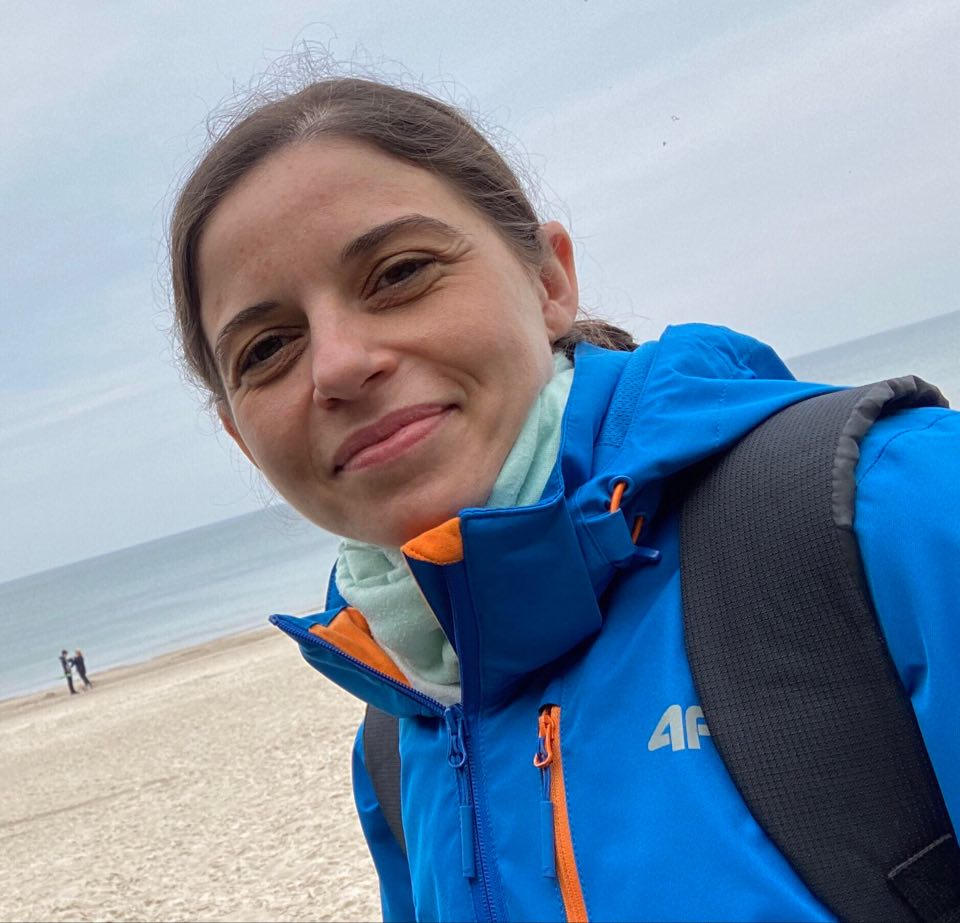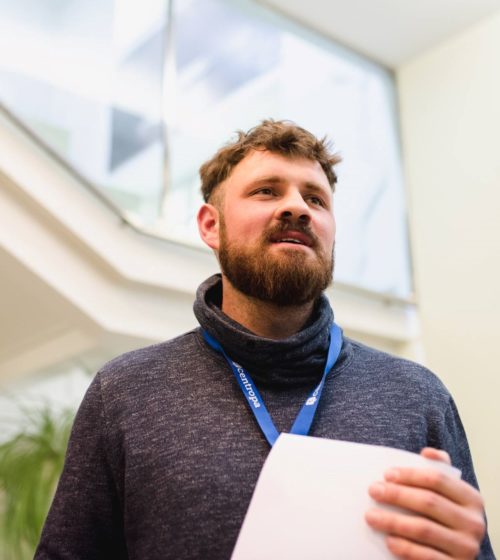Skepsis. Critical thinking VS xenophobia
 Skepsis. Critical thinking VS xenophobia is a local project in Poznan led by volunteers. During this initiative, we will improve the critical thinking skills and media literacy of our participants through delivering a dozen activities and workshops for people of different ages and backgrounds. These activities will be organised in Poznan – in local schools, at the universities, as well as in public spaces. Our events are addressed to the residents of Poznan city – both from Poland as well as foreigners. Experts together with local and international volunteers will conduct workshops in 3 languages – Polish, English and Russian to involve non-Polish speakers as well. Within this project, we want to create an exhibition in Poznan on the topic of critical thinking from materials created by participants.
Skepsis. Critical thinking VS xenophobia is a local project in Poznan led by volunteers. During this initiative, we will improve the critical thinking skills and media literacy of our participants through delivering a dozen activities and workshops for people of different ages and backgrounds. These activities will be organised in Poznan – in local schools, at the universities, as well as in public spaces. Our events are addressed to the residents of Poznan city – both from Poland as well as foreigners. Experts together with local and international volunteers will conduct workshops in 3 languages – Polish, English and Russian to involve non-Polish speakers as well. Within this project, we want to create an exhibition in Poznan on the topic of critical thinking from materials created by participants.
We are supported by the European Solidarity Corps.
Our project team consists of several enthusiastic volunteers: Krzysiek Woltynski, Agnieszka Zielinska, Ania Wisniewska, Bohdan Pozniak, Dariana Hlava, Joanna Szwaba, Kasia Balcer, Marta Jagodzinska, Marko Boyko, Kateryna Kazakova, Anna Shlyakhova.
What do we want to achieve?
In this local project, we aim to address fake news, disinformation, and subjective information. These problems are intensifying the issue of xenophobia and discrimination, which may negatively influence our local, international communities in Poznan. During our “learning by doing” workshops and activities, we will show how misinformation can affect our perception of foreigners. We will also teach how to recognise false and subjective information. Our local team is international; thus, our participants will be able to meet and communicate with people from different countries.
Czym jest nasz lokalny projekt Skepsis w Poznaniu?
 Skepsis. Critical thinking VS xenophobia to lokalny projekt w Poznaniu prowadzony przez wolontariuszy. Podczas tej inicjatywy, mamy na celu poprawę zdolności krytycznego myślenia i interpretacji mediów wśród naszych uczestników poprzez przeprowadzenie kilkunastu zajęć i warsztatów dla osób z różnych grup wiekowych i wywodzących się z różnych środowisk. Te zajęcia będą organizowane w Poznaniu – w lokalnych szkołach, na uniwersytetach, a także w przestrzeni publicznej takiej jak w lokalnych parkach czy w Inkubatorze Kultury „Pireus.” Nasze wydarzenia są adresowane do mieszkańców Poznania – zarówno z Polski, jak i obcokrajowców. Specjalnie do tego przygotowani eksperci wraz z lokalnymi i międzynarodowymi wolontariuszami będą przeprowadzać warsztaty w 3 językach – Polskim, Angielskim i Rosyjskim po to, by zaangażować jak największą grupę odbiorców. W ramach tego projektu chcemy stworzyć wystawę na temat krytycznego myślenia z materiałów stworzonych przez uczestników.
Skepsis. Critical thinking VS xenophobia to lokalny projekt w Poznaniu prowadzony przez wolontariuszy. Podczas tej inicjatywy, mamy na celu poprawę zdolności krytycznego myślenia i interpretacji mediów wśród naszych uczestników poprzez przeprowadzenie kilkunastu zajęć i warsztatów dla osób z różnych grup wiekowych i wywodzących się z różnych środowisk. Te zajęcia będą organizowane w Poznaniu – w lokalnych szkołach, na uniwersytetach, a także w przestrzeni publicznej takiej jak w lokalnych parkach czy w Inkubatorze Kultury „Pireus.” Nasze wydarzenia są adresowane do mieszkańców Poznania – zarówno z Polski, jak i obcokrajowców. Specjalnie do tego przygotowani eksperci wraz z lokalnymi i międzynarodowymi wolontariuszami będą przeprowadzać warsztaty w 3 językach – Polskim, Angielskim i Rosyjskim po to, by zaangażować jak największą grupę odbiorców. W ramach tego projektu chcemy stworzyć wystawę na temat krytycznego myślenia z materiałów stworzonych przez uczestników.
Jesteśmy wspierani przez European Solidarity Corps.
Zespół naszego projektu składa się z kilku entuzjastycznych wolontariuszy: Krzysiek Woltynski, Agnieszka Zielinska, Ania Wisniewska, Bohdan Pozniak, Dariana Hlava, Joanna Szwaba, Kasia Balcer, Marta Jagodzinska, Marko Boyko, Kateryna Kazakova, Anna Shlyakhova.
Co chcemy osiągnąć?
W tym lokalnym projekcie mamy na celu zajęcie się problemem fake newsów, dezinformacji i subiektywnych treści. Te problemy zwiększają ksenofobię i dyskryminację, co może negatywnie wpłynąć na naszą lokalną, międzynarodową społeczność w Poznaniu. Podczas naszych warsztatów w formie „learning by doing” pokażemy, jak dezinformacje mogą wpłynąć na nasze postrzeganie obcokrajowców. Nauczymy naszych uczestników, jak rozpoznać nieprawdziwe i subiektywne informacje. Nasz lokalny zespół jest międzynarodowy, przez co uczestnicy będą mogli poznać i komunikować się z ludźmi z innych krajów.
Supported by

Project team
















💡 Did you know that Skepsis is now officially a network?
What started as a youth-led movement back in 2018 has grown into a European network of 11 organisations from 11 countries — and we’re just getting started.
Since July 2024, we’ve been working as Skepsis Network — a structured, youth-led platform that connects partners from Poland, Germany, Italy, Spain, Norway, France, Denmark, Greece, Portugal, Sweden, and Czechia.
🔍 We still stand for what we always believed in:
▪️ Critical thinking
▪️ Civic engagement
▪️ Real youth participation
But now — we do it as a united, formal, transnational network.
If you’ve been following us for a while — you're already part of this journey. And if you’re new here — welcome to the network.
#SkepsisNetwork #WeAreSkepsis ... See MoreSee Less
2 weeks ago
Comment on Facebook 💡 Did you know ...
💡 Did you know that Skepsis is now officially a network?
What started as a youth-led movement back in 2018 has grown into a European network of 11 organisations from 11 countries — and we’re just getting started.
Since July 2024, we’ve been working as Skepsis Network — a structured, youth-led platform that connects partners from Poland, Germany, Italy, Spain, Norway, France, Denmark, Greece, Portugal, Sweden, and Czechia.
🔍 We still stand for what we always believed in:
▪️ Critical thinking
▪️ Civic engagement
▪️ Real youth participation
But now — we do it as a united, formal, transnational network.
If you’ve been following us for a while — you're already part of this journey. And if you’re new here — welcome to the network.
#SkepsisNetwork #WeAreSkepsis ... See MoreSee Less
2 weeks ago
Comment on Facebook 💡 Did you know ...
... See MoreSee Less
2 months ago
Comment on Facebook 1907184566069577_1095577655941344
we are diving into three common cognitive biases that shape our thinking. 🧐
Learn how to identify these mental shortcuts, understand their impact, and discover ways to avoid falling into their traps.
Let’s sharpen our decision-making skills together! 💡
✨ #CognitiveBias #Mindfulness #CriticalThinking ... See MoreSee Less
8 months ago
Comment on Facebook 1907184566069577_954414640057647
Keep your mind awake and apply your critical thinking skills 🧐
You will find the link for the test on our Instagram highlights stories 🤓
So! Were you able to attach the right rhetorical devices/fallacies to the right videos?
Here’s our answer key:
ANSWER KEY
1 cherry picking fallacy
2 ad hominem fallacy
3 straw-man fallacy
4 genetic fallacy
5 authority-based fallacy
And take a look at our **Sources** they could be interesting to you to dig deeper!
fallacioustrump.com/
www.lespritcritique.fr/parcours ... See MoreSee Less
8 months ago
Comment on Facebook 1907184566069577_945606444271800
Critical thinking in the new media literacy 🤔📰
It is the ability to critically analyze, evaluate, and interpret the information presented in news media 🤓
In the last years it has become an essential skill for individuals of all ages to navigate the media landscape and make informed decisions 🧐
This skills have been studied specially in teenagers and a study found that highly news literate teens were:
•More intrinsically motivated to consume news 📖
• More skeptical 🤨
• More knowledgeable about current events 😎
(files.eric.ed.gov/fulltext/EJ1059962.pdf) ... See MoreSee Less
9 months ago
Comment on Facebook 1907184566069577_942605284571916